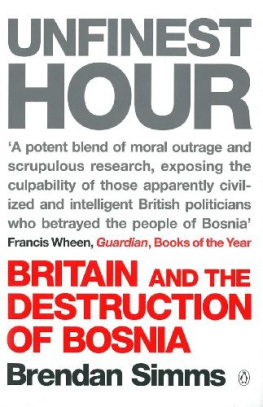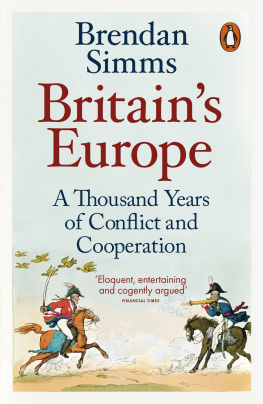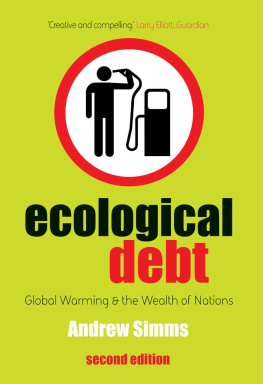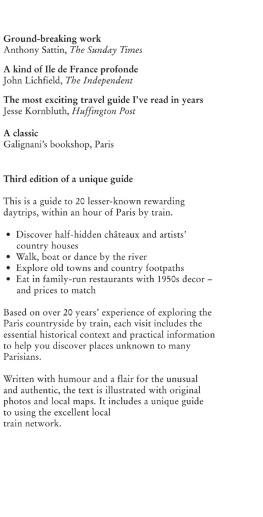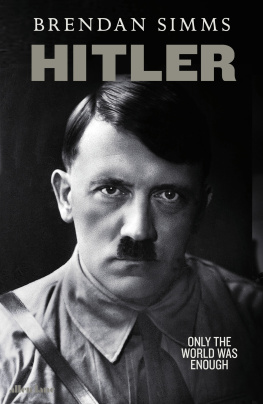PENGUIN BOOKS
UNFINEST HOUR
An important and valuable addition to the corpus of work on Bosnia, and a rigorous, lucid account of failures moral, political and diplomatic that followed from Britains appeasement of Belgrade and the Bosnian Serbs Adam LeBor, Literary Review
The miserable consequences of our amoral equivalence are brilliantly recorded in Brendan Simmss new book, Unfinest Hour Michael Gove, The Times
As Simmss satirical pen surveys the political landscape of the time, few emerge with any credit Mark Mazower, Evening Standard
Brendan Simms probes this grave British failure, at once moral, military, and political, in his sharply condemnatory Unfinest Hour. Sadly it is all justified Martin Woollacott, Guardian
The government of John Major should be on trial, for turning a blind eye to genocide. The prosecution case, in damning detail, is to be found in Unfinest Hour Geoffrey Robertson, Financial Times , Books of the Year
Brendan Simmss brilliant, angry account explicitly addresses what commentators and historians have always felt: that it was classic British diplomacy which stymied any real attempt to prevent the feeding of Serb ambitions Eamon Delaney, Irish Times
Unfinest Hour is more than a diplomatic history. It is a grim cultural study of the political, military and intellectual lites of the early Nineties Nick Cohen, Observer
This compelling study is both complex and deeply disturbing tells us why the issue of Bosnia inevitably came to haunt us all What makes Unfinest Hour a magnificent work of history is not simply its superb scholarship but the passion with which Simms deconstructs Britains collusion in the attempted destruction of a small European nation Branka Magas, Tablet
An important book, and opportune Brendan Simms subjects the policy of Douglas Hurd to merciless analysis a cogent moral argument Melanie McDonagh, New Statesman
Simms shows how the blind led the blind in a great mistaken consensus Sir Reginald Hibbert, World Today
ABOUT THE AUTHOR
Brendan Simms is Director of Studies in History at Peterhouse and Newton Sheehy Lecturer in International Relations at the Centre for International Studies, University of Cambridge. He is also the author of The Impact of Napoleon and The Struggle for Mastery in Germany, 17791850.
Brendan Simms
Unfinest Hour
BRITAIN AND THE
DESTRUCTION OF BOSNIA

PENGUIN BOOKS
PENGUIN BOOKS
Published by the Penguin Group
Penguin Books Ltd, 80 Strand, London WC2R 0RL , England
Penguin Putnam Inc., 375 Hudson Street, New York, New York 10014, USA
Penguin Books Australia Ltd, 250 Camberwell Road, Camberwell, Victoria 3124, Australia
Penguin Books Canada Ltd, 10 Alcorn Avenue, Toronto, Ontario, Canada M4V 3B2
Penguin Books India (P) Ltd, 11, Community Centre, Panchsheel Park, New Delhi 110 017, India
Penguin Books (NZ) Ltd, Cnr Rosedale and Airborne Roads, Albany, Auckland, New Zealand
Penguin Books (South Africa) (Pty) Ltd, 24 Sturdee Avenue, Rosebank 2196, South Africa
Penguin Books Ltd, Registered Offices: 80 Strand, London WC2R 0RL , England
www.penguin.com
First published by Allen Lane The Penguin Press 2001
Published in Penguin Books with a new Preface 2002
Copyright Brendan Simms, 2001, 2002
All rights reserved
The moral right of the author has been asserted
Except in the United States of America, this book is sold subject
to the condition that it shall not, by way of trade or otherwise, be lent,
re-sold, hired out, or otherwise circulated without the publishers
prior consent in any form of binding or cover other than that in
which it is published and without a similar condition including this
condition being imposed on the subsequent purchaser
978-0-14-193767-0
For Sophie
23.3.199923.8.1999
If you have shown yourself weak at a time of crisis, how limited is your strength!
Rescue those being dragged away to death, and save those being hauled off to execution.
If you say, But this person I do not know, God, who fixes a standard for the heart, will take note; he who watches you will know; he will repay everyone according to what he does.
Proverbs 24: 1012
Contents
2 The Lowest Common Denominator:
Britain Stifles America, 19911993
3 The Real Stumbling Block:
Britain Stifles Nato, 19931995
4 Let Me Through, Im a Doctor:
David Owen and the Mediation Effort
7 Emulsifying the Whole Affair:
Parliament and the Public Sphere
Preface to the Paperback Edition
Unfinest hour was published in the immediate aftermath of the 11 September attacks and the resulting war in Afghanistan. It was reviewed or discussed in all the major broadsheets, almost always in very positive terms. The resonance in Bosnia, Croatia and even Serbia was very warm and extensive. The author was inundated by letters of support, reams of additional evidence, revealing videos and invitations to participate in television documentaries. His attention was also drawn to a number of stories from the world of the secret services, some of them exotic, others one fears less so.
In short, there was no wave of public obloquy and head-shaking. To an extent that was both gratifying and disconcerting, it became clear that Unfinest hour was battering an open door. With the arrival of the Labour government in 1997, the whole tone and content of British Balkan policy had begun to change. But the interpretative context had changed too. After the success of operations Deliberate Force, when NATO air power helped to defeat the Bosnian Serbs in the autumn of 1995, and eventually Allied Force, when the alliance took on Milosevic in Kosovo, nobody needed to be persuaded of the efficacy of air power. After the Srebrenica massacre and the expulsion of the Albanians from Kosovo, the contours of the Greater Serb project were not in doubt. And, of course, Unfinest hour benefitted from the institutional amnesia of the press. As the Sunday Times reviewer Alan Judd wrote: One thing we can be sure of: the papers and magazines that will rightly praise this book were, almost to an issue, supporters of our Bosnian policy.
The start of the trial of the Serbian leader Slobodan Milosevic before the International War Crimes Tribunal in The Hague triggered a fresh The purpose of this joint criminal enterprise, point 6 of the indictment continues, was the forcible and permanent removal of the majority of non-Serbs, principally Bosnian Muslims and Bosnian Croats, from large areas of the Republic of Bosnia and Herzegovina. And far from accepting the argument that Bosnia was essentially a civil war, the prosecutors claimed in point 47 of their indictment that: At all times relevant to this indictment, a state of international armed conflict and partial occupation existed in Bosnia and Herzegovina. It would be difficult to find a more comprehensive refutation of all the presuppositions on which British policy between 1992 and 1995 rested.
Of course, the idea that Milosevics widespread contacts with Western especially British elites somehow constitute a defence in law is ludicrous. Even more eccentric is the suggestion that his Western interlocutors should be standing beside him in the dock. Whether, on the strength of the arms embargo, they might plausibly be charged with being accomplices to genocide is a more interesting issue of international law, which the Bosnian government itself briefly explored in 1993; this was not, however, an argument made in Unfinest hour. What the book did do was provide a timely reminder of the fact that John Majors government and the EU mediator, Lord Owen, had done all they could to neuter the Tribunal at birth, and to coopt the Serbian leader into the peace process.role in winding up the war, and as a legitimate and sought-after interlocutor, had put him in good standing. Milosevic would have been further encouraged by the fact that the former Foreign Secretary, Douglas Hurd, and Pauline Neville-Jones, who had attended Dayton in her capacity as Political Director of the Foreign Office, came to Belgrade a year later in pursuit of a lucrative contract to advise on the privatization of Serbian utilities. It was only in 19989 that the penny finally dropped that Milosevic was the principal cause of instability in the Balkans, not part of the solution. To see Milosevic before a British judge, Richard May, and being confronted by a British co-prosecutor, Geoffrey Nice QC, was thus an irony indeed, though a welcome one.

